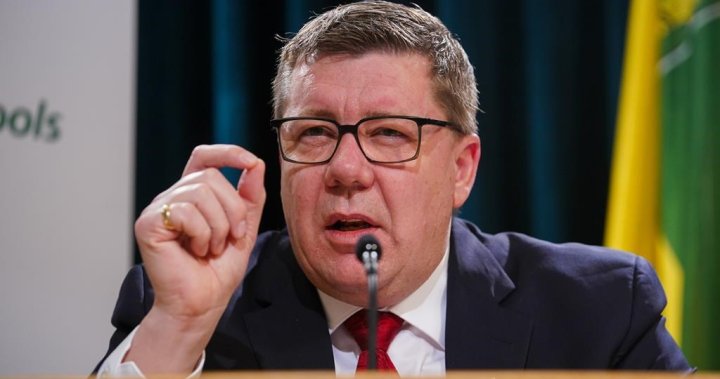Prime Minister Justin Trudeau recently issued a warning to Saskatchewan Premier Scott Moe, stating that the Canada Revenue Agency (CRA) is capable of recovering any money owed to them. In response, Premier Moe disputed Trudeau’s claims, asserting that the CRA does not have the authority to pursue the province of Saskatchewan. Moe argued that Saskatchewan had paid all the required taxes, and therefore, there was no legitimate threat from the CRA. He also criticized Trudeau for potentially targeting provinces with unanimous votes in their legislation, stating his disagreement with the Prime Minister’s views on the matter.
Trudeau reiterated his stance in a press conference held in Oakville, Ontario, stating that the CRA would follow the proper legal processes to collect any owed money. He expressed confidence in the CRA’s ability to recover the funds and reassured the people of Saskatchewan that they would not be penalized for the province’s actions. Trudeau highlighted the importance of paying taxes and avoiding disputes with the CRA, emphasizing the potential repercussions of not meeting tax obligations. The disagreement between Trudeau and Moe stems from the Liberals’ decision to create a temporary exemption to the carbon price for home heating oil, leading to a jurisdictional dispute between the federal and provincial governments.
The confrontation between Trudeau and Moe reflects a broader issue surrounding tax compliance and jurisdictional authority in Canada. While the CRA is responsible for enforcing tax laws and collecting owed money, provinces like Saskatchewan have their own laws and regulations that govern tax matters. The disagreement highlights the complex interplay between federal and provincial authorities when it comes to taxation and enforcement, raising questions about the balance of power and responsibilities between different levels of government. Both leaders remain steadfast in their positions, with Trudeau emphasizing the importance of tax compliance and Moe asserting his province’s right to manage its tax affairs independently.
The ongoing dispute between Trudeau and Moe underscores the challenges of governance and federal-provincial relationships in Canada. As the two leaders continue to stand by their opposing views, the situation highlights the need for transparency, communication, and collaboration between different levels of government. The resolution of this conflict will likely require dialogue, negotiation, and potentially legal action to clarify the responsibilities and obligations of both federal and provincial authorities. Moving forward, finding a mutually agreeable solution will be essential to maintaining a harmonious relationship between the federal government and the provinces.
In conclusion, the clash between Prime Minister Justin Trudeau and Saskatchewan Premier Scott Moe over tax compliance and CRA enforcement demonstrates the complexities of governance in Canada. The disagreement underscores the need for clear communication and collaboration between federal and provincial authorities to address jurisdictional disputes effectively. Finding a resolution to the conflict will be crucial for maintaining a cooperative and functional relationship between the federal government and the provinces, emphasizing the importance of upholding tax laws while respecting the distinct roles and responsibilities of different levels of government. Both leaders must work towards a mutually agreeable solution to ensure the effective enforcement of tax laws and the preservation of harmonious federal-provincial relations.













